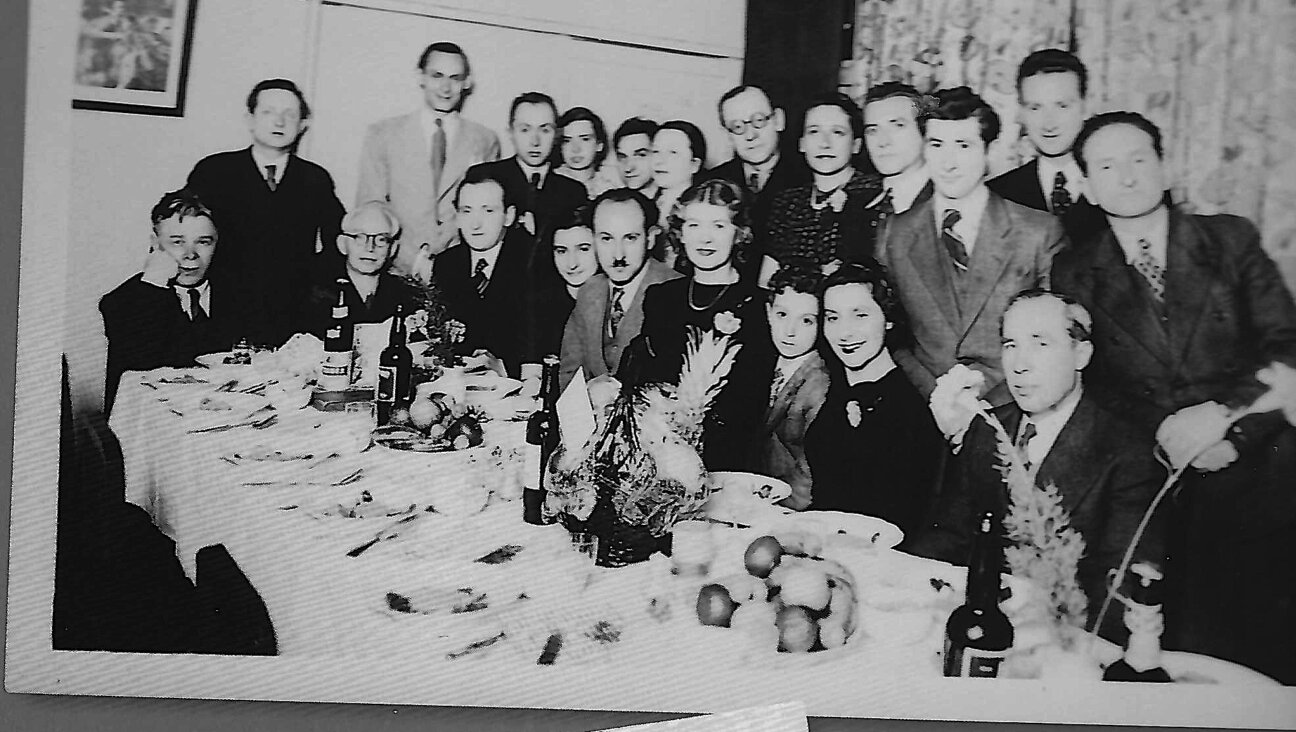Writing What You’ve Never Seen

Earlier this week, Janice Weizman wrote about the bildungsroman and the Jewish woman. Her blog posts are featured on The Arty Semite courtesy of the Jewish Book Council and My Jewish Learning’s Author Blog Series. For more information on the series, please visit:

All fiction writers have a streak of audacity. To make up something and then ask readers to suspend their disbelief and give themselves over to your vision is, well, a little outrageous. Among the most audacious are the writers of historical fiction. How can anyone presume to know what it was like to live and work and raise a family in a time other than their own? How can one comprehend the hopes, the limitations, and the challenges of people who lived their lives in historical periods with radically different circumstances and assumptions?
Logic says that it’s impossible. Yet the imagination insists that it’s not. It insists that, with a little bit of help, it can transcend space and time and understand something beyond the here and now.
Allow me to offer an example. Let’s say you want to write a scene in which a character goes to a bathhouse. You could do worse than to make your way to Acco, a city in the North of Israel. When you get there, you may want to linger for a few minutes on the boardwalk, enjoying the vista of the bright blue sea, but don’t stop there. Continue along the boardwalk, and head for the old city. You’ll know it by the shops and vendors at the entrance, selling nargillas, Armenian pottery, olive wood carvings, humous, and fresh pomegranate juice. Look for the signs on the walls pointing the way to the Hammam — the public bathhouse. When you get there, you’ll have to take the tour. Maybe you’re the type that doesn’t like tours, but do it anyway. That way you’ll get to see the inside. You’ll be shown the various pools, now dry and empty, and hear the stories about the generations of balanim — bathhouse attendants who would scrub you down with sponges and brushes and fill you in on the latest gossip. And then there will be a moment when the group moves on, but don’t follow them. Remain behind and linger a little longer.
Instead of the empty stone pools, think of steam rising from the hot water. Instead of the scent of moldy walls, imagine wafts of rosewater and jasmine oil. And now, in the dim light and the silence, try to hear the voices. Hear the groans of the women being scrubbed with rough sponges by stern-faced attendants, the trills of laughter from a group listening to the town matchmaker tell a racy joke, the soft whispering of two girls in the corner, pointing to a third and whispering, “Look at that stomach. If she isn’t pregnant, then I’m a Rabbi.”
If you can see all this, then you’ll feel it in your bones—how the very drama of life played out alongside the tiled bathing pools. And as you emerge into the alley that leads back to the market you’ll know, from some mysterious place in your head that you never knew existed, exactly how to write the scene in the bathhouse.
Janice Weizman was born in Toronto, and moved to Israel at the age of nineteen. She is a graduate of the Creative Writing program at Bar-Ilan University, where she initiated and serves as managing editor of The Ilanot Review, an online literary journal. Janice’s fiction has appeared in various literary journals including Lilith, Jewish Fiction, and Scribblers on the Roof. Her first novel, “The Wayward Moon,” was recently awarded the Gold Medal in the Independent Publisher Book Awards and first place in the Midwest Book Awards, both in the category of Historical Fiction. Visit her website at http://janiceweizman.com/.
The Jewish Book Council is a not-for-profit organization devoted to the reading, writing and publishing of Jewish literature. For more Jewish literary blog posts, reviews of Jewish books and book club resources, and to learn about awards and conferences, please visit www.jewishbookcouncil.org.
MyJewishLearning.com is the leading transdenominational website of Jewish information and education. Visit My Jewish Learning for thousands of articles on Judaism, Jewish holidays, Jewish history and more.

I hope you appreciated this article. Before you go, I’d like to ask you to please support the Forward’s award-winning journalism this Passover.
In this age of misinformation, our work is needed like never before. We report on the news that matters most to American Jews, driven by truth, not ideology.
At a time when newsrooms are closing or cutting back, the Forward has removed its paywall. That means for the first time in our 126-year history, Forward journalism is free to everyone, everywhere. With an ongoing war, rising antisemitism, and a flood of disinformation that may affect the upcoming election, we believe that free and open access to Jewish journalism is imperative.
Readers like you make it all possible. Right now, we’re in the middle of our Passover Pledge Drive and we need 500 people to step up and make a gift to sustain our trustworthy, independent journalism.
Make a gift of any size and become a Forward member today. You’ll support our mission to tell the American Jewish story fully and fairly.
— Rachel Fishman Feddersen, Publisher and CEO
Join our mission to tell the Jewish story fully and fairly.
Our Goal: 500 gifts during our Passover Pledge Drive!
























